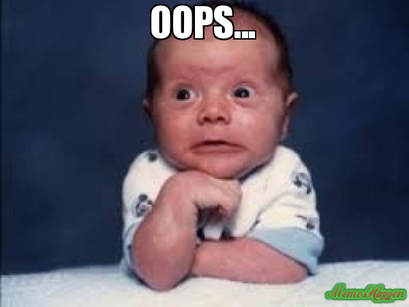 Mistakes are not the end of the world Mistakes are not the end of the world Mistakes do not have to be a curse nor failure the last nail in the coffin, good teams and strong leaders learn from everything. Organizations want to reduce mistakes, eliminate failures and insulate themselves from negative consequences. Focusing on failure would be an error. Persons in a position of leadership (PIAPOL) need to approach issues with the skill and precision of an epidemiologist dispatched to discover the root cause of an outbreak. There is a difference between a mistake and a repeated mistake as well as those made in the course of learning new skills and those made for lack of care. We will explore three simple principles that will assist your team to gaining from failures rather than allowing them to cause you to fall behind. Three keys 🔑 to making a mistake count:
Ignorance is not bliss, it’s a death sentence. What does the second most quoted English poet, Alexander Pope have to say about failure? “A man should never be ashamed to own he has been in the wrong, which is but saying... that he is wiser today than he was yesterday. For an organization the biggest mistake is to not allow room for employees to make mistakes. If the culture of the company is to be heavy handed with mistakes then they will miss opportunities to hear about near misses that could expedite the process of adaptation. Experimentation is a scientific process that inherently relies on failure. We theorize, we test our theories in real world applications and we learn whether our theory is true or untrue. In that process there are several steps where our perspectives were wrong and we adjust course to move closer to our goals.
Pain of failure is a lifelong professor, fear of failure will cut you off at the knees. Writing in Psychology Today, Dr. Jeremey E Sherman makes a few philosophical observations about the natures of mistakes, “ We learn by trial and error, but learn much faster when trials are similar and errors are clearer.” Touching on the reality in life that most of us are stubborn and chose the hard road when learning something. But he elaborates on a principle that will help unlock the formula to reducing the frequency and impact of those mistakes, simplification, “The cobbler’s trials are largely the same from shoe to shoe—same materials, tools and workspace, and his errors are easy to identify—this shoe fell apart; that one didn’t fit.” This means we can either engage in simplified tasks to minimize our exposure to the potential for failure or we can work to build processes that simplify what we do. Many people in leadership will mention making their systems like McDonald’s to achieve a consistent product output. Efficiency is essential in any business, reducing waste and optimizing operational flow, as long as that process does not completely choke out any room for organizational creativity which is essential in our rapidly evolving market.
Moving forward isn’t the only measure of success as it is possible to be moving forward in an endless circle that goes nowhere. Move onward and upward. If we know and own our mistakes we aren’t afraid to share them which allows our teams to learn openly and rapidly from them. As the market evolves we have to be willing to admit that what worked yesterday will not work today, so we are constantly evolving and thereby operating in trial and error. Trial and error is a scientific process if we structure our thoughts and experiments towards being productive in a learning culture. Failure in the scientific process is not the end of the road but a step towards truth. When the great inventors Thomas Edison was asked about the apparent fruitlessness of his labors while developing battery technology, he replied, "Results! Why, man, I have gotten a lot of results! I know several thousand things that won’t work." By admitting what hasn’t worked we can move towards what will. By creating an environment where mistakes can be shared, the lessons can be spread more expediently to assist others in not repeating them. When failures happen we must lean into them rather than avoiding them because they often hold the keys to unlocking the next level of lessons. We often view or desire to take broad steps in our growth but it is important to remember that consistent progress can come in the form of crawling, taking small steps or wading through thick muck. We cannot ignore our mistakes, this is a recipe for repeating the same issues. We created a video that demonstrates and exposes the errors in several common management approaches to employee mistakes, you will laugh and learn. Onward and upward. IZ Ventures - more than business coaching and consulting, we help you connect, collaborate and conquer.
0 Comments
Leave a Reply. |
AuthorThoughts on personal and professional development. Jon Isaacson, The Intentional Restorer, is a contractor, author, and host of The DYOJO Podcast. The goal of The DYOJO is to help growth-minded restoration professionals shorten their DANG learning curve for personal and professional development. You can watch The DYOJO Podcast on YouTube on Thursdays or listen on your favorite podcast platform.
Archives
March 2023
Categories
All
<script type="text/javascript" src="//downloads.mailchimp.com/js/signup-forms/popup/unique-methods/embed.js" data-dojo-config="usePlainJson: true, isDebug: false"></script><script type="text/javascript">window.dojoRequire(["mojo/signup-forms/Loader"], function(L) { L.start({"baseUrl":"mc.us5.list-manage.com","uuid":"b9016446bd3c6a9f0bd835d4e","lid":"83282ffb9e","uniqueMethods":true}) })</script>
|
Jon Isaacson |
Connect. Collaborate. Conquer.
© COPYRIGHT 2015. ALL RIGHTS RESERVED.
|



 RSS Feed
RSS Feed